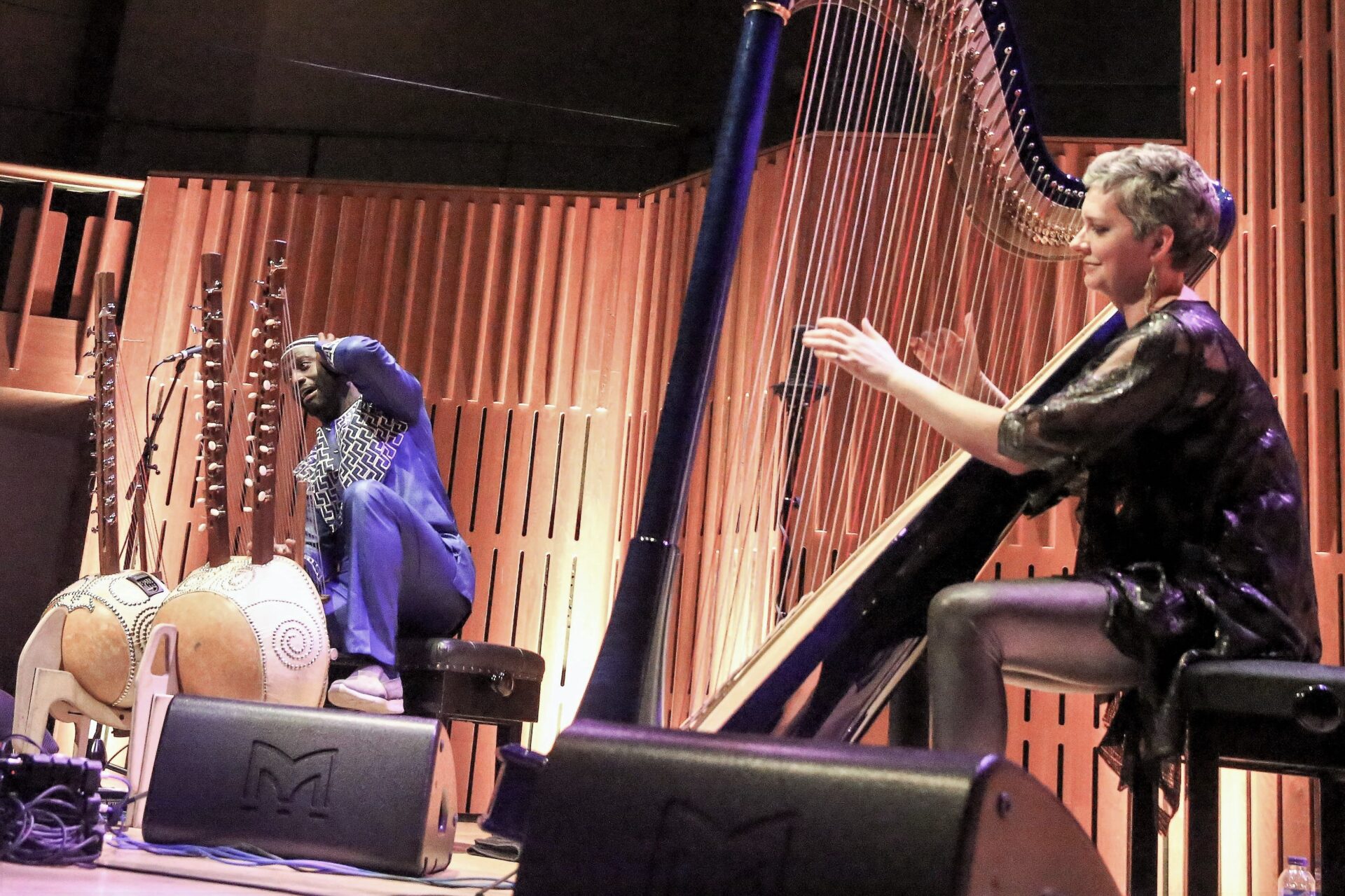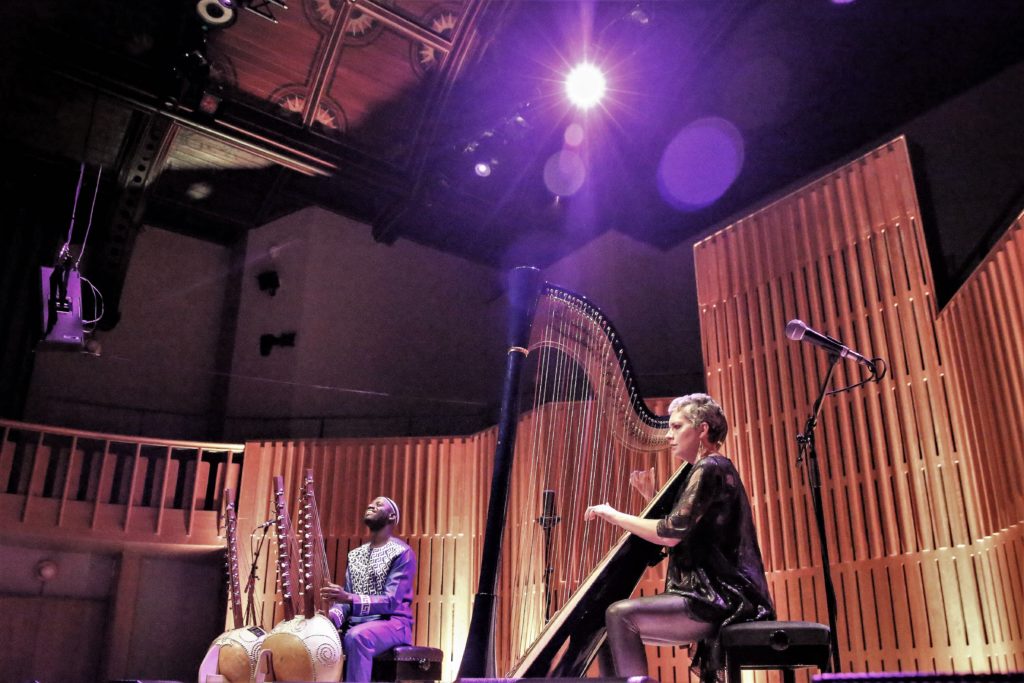It was just over a year ago that the Senegalese kora player Seckou Keita last appeared on this very stage. On that occasion he performed alongside the celebrated Cuban jazz pianist Omar Sosa and Gustavo Ovalles, the equally fêted polyrhythmic percussionist from Venezuela. It was one of the cultural highlights of God Is In The TV’s year and amongst many other similarly wonderful shows, the best concert I had personally experienced in the Howard Assembly Room in 2017.
Tonight Seckou Keita joins forces with another virtuoso musician, the Welsh harpist, arranger and composer Catrin Finch. Finch and Keita first played together in 2012 and released their debut album Clychau Dibon the following year. Its long-awaited follow-up SOAR arrived back in April and for 90 mesmerizing minutes this evening Catrin Finch and Seckou Keita hold us in their complete thrall with selected material from those two records.
The principal theme of SOAR is the osprey, the large bird of prey which every year migrates the thousands of miles between Wales and Senegal. Finch and Keita commence with ‘Clarach’, the opening track on the new album. Named after the first chick to be born at the Dyfi Osprey Project in Powys after osprey had returned to Wales following a four hundred year absence, ‘Clarach’ takes wings and flies as the harp and kora entwine. The narrative of the bird’s journey is recreated as both instruments flutter and rise in perfect unison reflecting the osprey’s graceful flight and majestic presence.
And just as it does on the record, ‘Téranga-Bah’ faithfully follows thereafter. Meaning “hospitality” in Wolof (a language of Senegal), it captures all of the West African country’s warmth and geniality as the kora and harp continue their exquisite interplay.
Inspired by Seckou Keita’s stated desire “to learn some classical music”, Finch and Keita went on to create the incredibly complex ‘Bach to Baïsso’. Beginning with an excerpt from Bach’s Goldberg Variations, the piece merges seamlessly with Baïsso, a traditional high-status melody from Senegal which comes complete with Keita’s evocative singing.
‘1677’ is dedicated to that period of time when the French captured Gorée, a small island off the coast of Dakar in Senegal, a place synonymous with the then Atlantic slave trade. As Keita explains, faced with this barbaric, inhumane practice the Senagelese people sought solace in music. The initially bluesy intonations of ‘1677’ capture the pain and anguish of this healing process, before the song metamorphoses into something that is altogether more playful perhaps in so doing reflecting the strength and endurance of the human spirit.
‘Cofiwch Dryweryn’ – its title taken from famous graffiti of the 1960’s, “Remember Tryweryn” – vividly recalls the flooding of the Tryweryn Valley in 1965 to create a reservoir that now serves the city of Liverpool, an act that heightened the nationalist cause for a generation of people in Wales. It is by subliminal degrees both mournful and inspirational as each instrument holds its notes as if in suspended animation. Finch and Keita’s voices join the occasion, floating just above the melody before blurring into each other. It is quite simply breathtaking.
Catrin Finch and Seckou Keita return as they have done all evening, as one, for a rousing encore of ‘Bamba’, and with it they bring to a triumphant close a stirring, ebullient and incredibly heart-warming performance that just like Sosa, Keita and Ovalles’s some 12 months previously surely has to be the Howard Assembly Room’s best concert of the entire year.
Photos: Simon Godley
More photos from this performance can be found HERE





